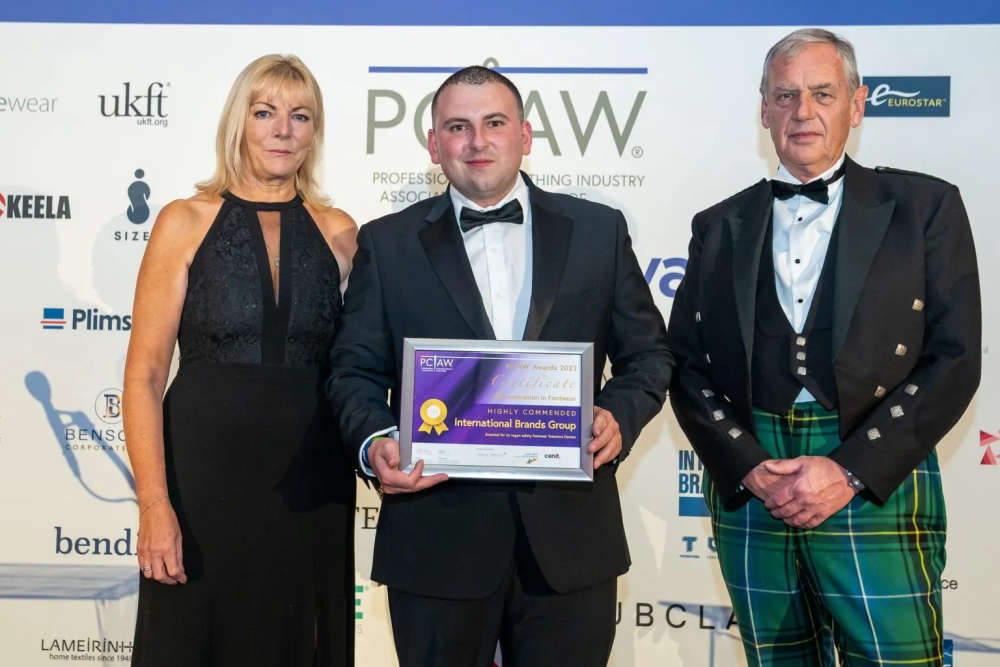
This week is National Stalking Awareness Week (25 - 29 April) and Northamptonshire Police wants to encourage stalking victims to come forward and access the help that is available.
“Trust yourself and your instincts, and report your concerns” – that’s the advice from Detective Inspector Ashleigh Houlden, a Force lead for stalking.
DI Houlden said: “People have a natural instinct when it comes to danger. Trust your gut. If someone’s behaviour feels wrong, it most likely is. If you are repeatedly receiving unwanted attention and have concerns you’re being stalked please come forward. Report it to the police so that we can protect you and help you to access specialist victim support.”
Think FOUR, if someone’s behaviour is Fixated, Obsessive, Unwanted and Repeated then it could be stalking. It can be perpetrated by men or women, and by strangers, acquaintances, or ex-partners.
Examples of stalking behaviours include:
- Regularly giving unwanted gifts
- Making unwanted communication
- Damaging property
- Repeatedly following or spying on you
- Threats
DI Houlden said: “Most cases of stalking are not reported for some months - victims may think that the police will see unwanted attention as trivial, but this is definitely not the case. We know that having gifts, or flowers left at your home, or on your desk isn’t always flattering, and in the context of stalking can be frightening or intimidating.
“Victims sometimes think that they have bought this on themselves, or they have done something to encourage these behaviours – particularly if they had originally been in a relationship with the person or were friendly with them at the start. This is not the case; you are not to blame.
“It doesn’t matter if you know the perpetrator or not, this persistent, fixated, coercive controlling behaviour shouldn’t be normalised or accepted. Stalking is against the law.
“Everyone has a right to feel safe in their own home, at work, online and in public spaces. We encourage people to contact us sooner rather than later so that we can protect and support victims and get the best outcomes for them. There are measures we can take to help protect you and make it stop.”
Many stalkers will try to intimidate and evoke fear by using technology and the internet - known as cyberstalking. DI Houlden asks people to think about their online security and digital footprint, and the devices they use, which may allow someone access to their home or private life.
She explained: “Like your front door, the door to your online life needs to be firmly locked. To keep out cyber-stalkers make sure all your accounts are secure and your passwords are updated regularly.
“Limit the amount of information you share about yourself on social networking sites. Avoid online quizzes which ask for questions that could be answers to security questions. And check your privacy settings to ensure you are not giving away more information about yourself than you intend to.
“Think about who has access to things like emails, online banking and smart devices or security cameras. That access may have been okay while in a relationship, but it is important to change this if there is a relationship breakdown.”
In many cases the stalking can be part of a bigger picture of threats and harassment by an ex-partner. 82% of stalking offences dealt with by Northamptonshire Police are domestic related.
To assist the police and courts, it’s helpful to gather evidence and document what is happening. Evidence can include phone records, copies of text messages and emails, screenshots of web pages or instant messaging conversations, letters, or gifts.
It’s also very helpful to keep a diary of all incidents connected to the stalking. You should write about stalking incidents in the diary as soon as they happen or as soon as possible afterwards and include details like the time, date, location, what happened, vehicle details and how it made you feel.
You can report stalking to the police online www.northants.police.uk or by calling 101 or 999 in an emergency.
Stalking can be difficult to cope with psychologically. Support for victims of stalking is available locally from Voice, a free, confidential service to help victims and witnesses of crime.
Charlotte Gunn, Senior Service Delivery Manager with Voice said: “This type of harassment and intimidation is debilitating for the victim, enormously stressful and has a huge emotional impact; it can feel as though there is no way out. We have specialist advisors at Voice who are experienced in supporting victims of stalking.
“Our trained experts can provide both practical help and advice, and the emotional support needed to cope and recover from stalking. We can provide help even if you haven’t reported to the police. You have not encouraged the behaviour and only they are accountable for it. The important thing to remember is that you don’t have to cope with this alone. Help is available.”
Voice for Victims and Witnesses can be contacted on 0300 303 1965 or www.voicenorthants.org
The National Stalking Helpline run by the Suzy Lamplugh Trust can offer free help and advice. Contact 0808 802 0300 or www.stalkinghelpline.org


 Local news content from CItiblog - read more at
Local news content from CItiblog - read more at  True crime expert from Olney nominated for national awards
True crime expert from Olney nominated for national awards
 Why Modernising Contract Drafting and Review Processes Matters for Business Growth
Why Modernising Contract Drafting and Review Processes Matters for Business Growth
 Countdown is on to Northampton Dragonboat Festival 2024
Countdown is on to Northampton Dragonboat Festival 2024
 Help to identify Kingsthorpe Man known as 'Terrance'
Help to identify Kingsthorpe Man known as 'Terrance'
 Totectors celebrate awards success
Totectors celebrate awards success
 Charity Single is a big hit
Charity Single is a big hit
 Have Your Say On Measures To Promote Responsible Dog Ownership
Have Your Say On Measures To Promote Responsible Dog Ownership
 Northampton Market Relocation
Northampton Market Relocation

